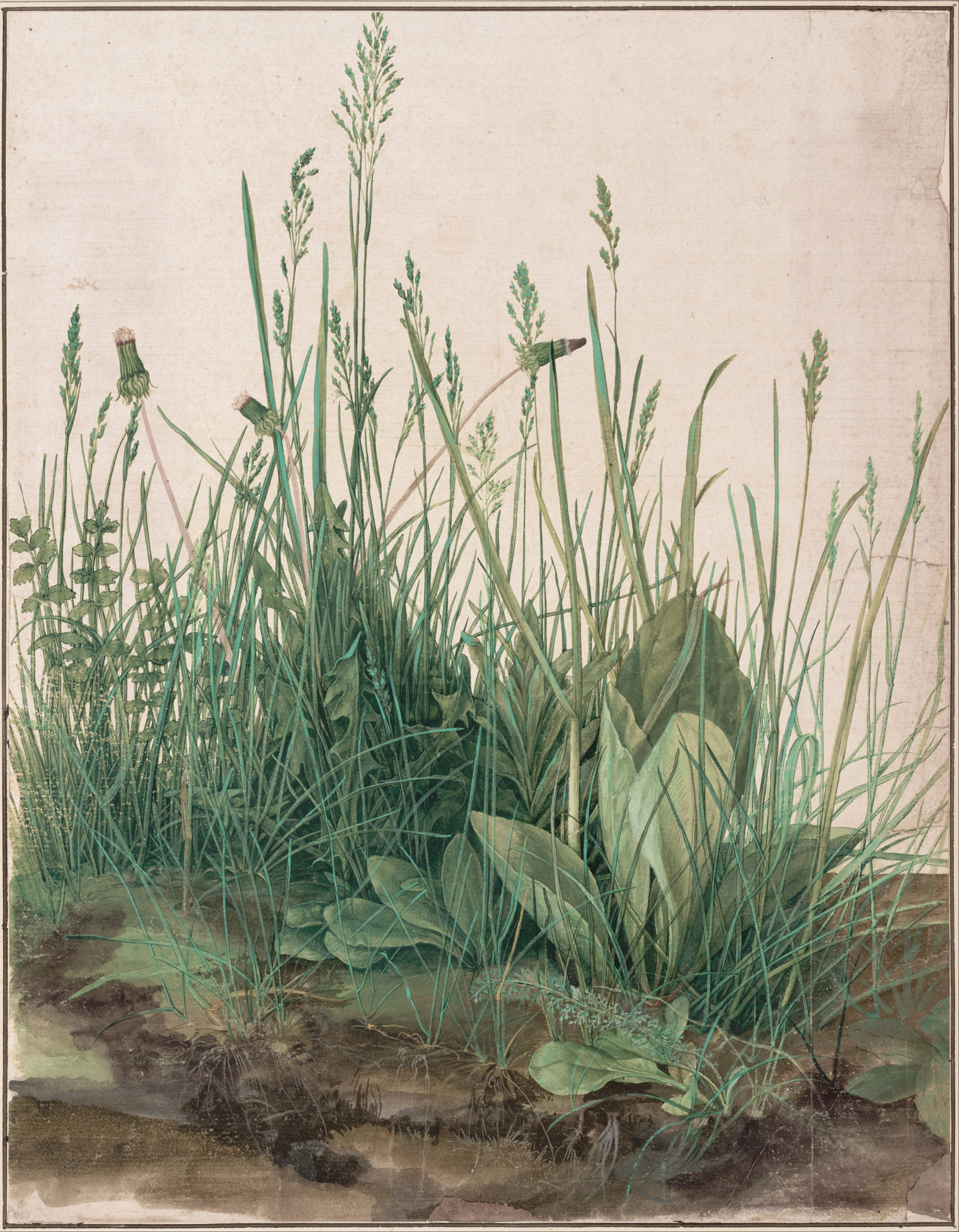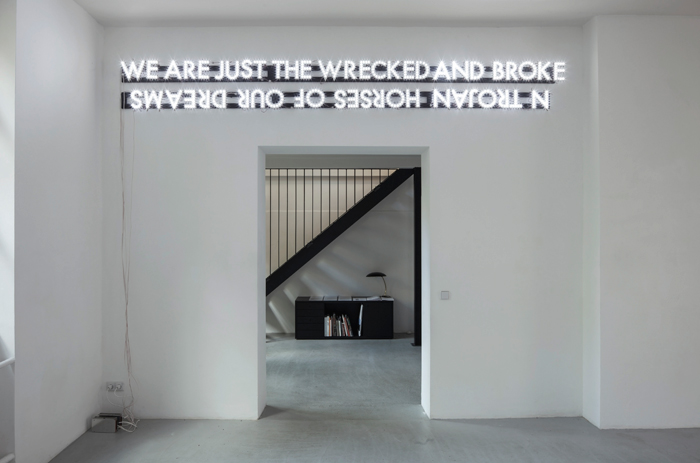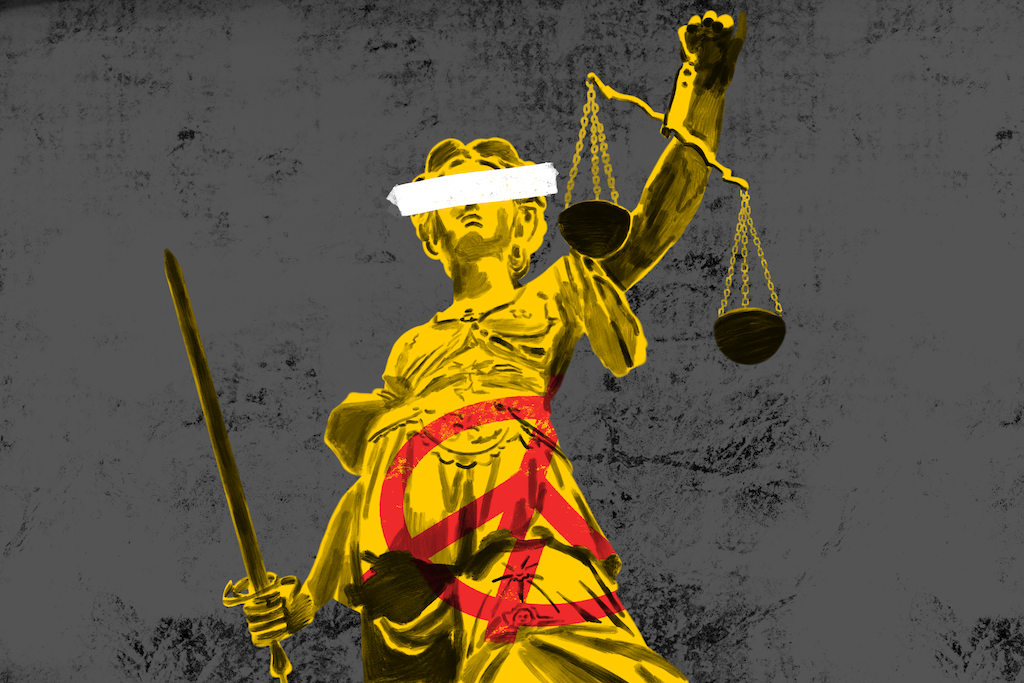
The walking people: an interview with an Irish Traveller
“The government thinks that everybody’s millionaires, like the people over there,” Sarah* tells me. She gestures out of her caravan window in the direction of the Prime Minister’s home constituency, Witney. “David Cameron is living on a high stool just down there. He’s saying he’s helping the poor, but it’s the poor that’s suffering.”
There are forty Irish Traveller plots in Oxfordshire, and every single one currently receives housing benefits, along with forty out of the forty-seven plots occupied by English Gypsies in the county. And these are the lucky ones. Many Travellers become trapped in a cycle of eviction, raising their children next to an unending succession of sewage works and motorways. In Gaelic, the Travellers call themselves Lucht Siúil, ‘the walking people’: these days, they are driven from plot to plot by the threat of violence from private bailiffs.
It is difficult to know where to begin when discussing the hundreds of examples of institutional, economic and personal prejudice the Travellers face. In almost every area, they are immensely at risk. They are twenty times more likely to be depressed than the general population. Sixty-one per cent of married English Gypsy women and eighty-one per cent of married Irish Traveller women report experiencing direct domestic abuse. Ten per cent of Traveller children die before their second birthday, and eighty per cent before retirement age. “We should get a social worker on here, and we have none,” Sarah observes. This hardly seems too much to ask.
Yet this support is nowhere to be found, and Sarah is “blaming the government for everything”. Before I visited the Irish Traveller site at Wheatley in East Oxfordshire, where our interview took place, I also spoke with Jeff Astbury from the Traveller Services Team, who made clear the disproportionate impact recent cuts have had on the communities he works with. “The main thing they are finding difficult at the moment is the housing-benefit freeze, especially with the rise in electric, water and rent bills. We’re trying to put them in touch with people that can help them but it’s really starting to hurt them.”
Cuts to the Energy Company Obligation threaten to leave fuel-poor Travellers without the protection they need, in a move described by Derek Lickorish, the chair of the government’s own Fuel Poverty Advisory Group, as “completely unequitable”. They already struggle with these bills: “sometimes you might go short, you might not have the price of gas,” Sarah tells me. Travellers who rely on the legitimate scrap trade have also been badly affected, following the 2013 Scrap Metal Dealers’ Act, which was ostensibly passed to clamp down on metal thieves. “It’s gone really bad. Travellers can’t even get scrap nowadays, because you have to ask, you can’t just take it. And people don’t want to give it to you. You have to go away.”
This reluctance to trust Gypsies and Travellers is deeply entrenched within our society. “They are scum,” Conservative MP Andrew MacKay said, in 2002. “People who do what these people have done do not deserve the same human rights as my decent constituents going about their ordinary lives.” He is not alone in his opinion. In 2008, thirty-four per cent of UK residents said they were prejudiced against Gypsies, Travellers and Eastern European Romani, in an open admission of bigotry that would be unthinkable with regard to any other ethnic minority. “It’s not everybody that lets you into their house, being honest, when you’re a Traveller. People don’t trust you”, states Sarah. Nor is this an issue of purely personal intolerance. Ninety per cent of planning applications filed by Gypsies and Travellers are rejected by local councils, compared to twenty per cent of those submitted by the general public. The best the Travellers can hope for seems to be indifference. Local councillors in Oxfordshire have recently put off a proposed visit to the Traveller sites. “Nobody seems to want to come and have a look”, according to Jeff Astbury.
Sarah traces much of this discrimination to the way the media vilifies her people. “That’s a load of bullshit”, she says with reference to Channel 4 documentary Big Fat Gypsy Weddings. The Irish Traveller Movement in Britain filed a case against this crude and misrepresentative series. Their report stated that the harm caused “is on a number of levels, including physical and sexual assault, racist abuse and bullying … the Big Fat Gypsy Weddings programmes have significantly contributed to racist bullying and abuse of Gypsy, Roma and Traveller children in schools.” Since 1991, six hundred complaints have been made to the Press Complaints Commission about the portrayal of Gypsies and Travellers. Not one has been upheld. This is mirrored in the experience of Sarah and her children: “people think we’re all the same … [the show] didn’t give the Travellers justice”. She tells me her children and grandchildren get called ‘Gypsy’ and physically assaulted at school, and that the Channel 4 programme has directly contributed to this culture of abuse.
This bullying contributes to possibly the greatest challenge facing Travellers today: gaining an adequate education. “We used to have teachers coming here, and they stopped them completely because of all the cutbacks,” Sarah tells me. With this service gone, and her children often ostracized at school, there seems little prospect of breaking the cycle of poverty through gaining qualifications. Statistics are hard to come by, but around 75,000 of the 300,000 adult Gypsies and Travellers in the UK are functionally illiterate. (When I arrive at Wheatley, it takes some time for me to convince the Travellers that I am not there to force them into signing any paperwork.) This translates to widespread unemployment. “I’m not qualified. I can’t do computers,” says Sarah. Her son “used to work stacking boxes. It wasn’t much but it was money. It was independence.” Now, there is nothing.
Jeff thinks the situation is worsened by a suspicion of education amongst the Travellers. “A lot of the parents pull [their kids] out of school early, especially the females. I think a lot of support has been withdrawn. They need a lot of educational support, and they need to be encouraged to stay in school and to see outside their community the opportunities they are. There are quite a few young women with children [five young single mothers live on the twelve plots at the Wheatley site], and unfortunately there’s no career path for them or anything like that. They’re stuck on the site most of the day.” The average school-leaving age among Travellers is just 12.6 years.
Yet Gypsies and Travellers in the British Isles still lead easier lives than many continental Romani. Between 500,000 and 1.5 million Romani lost their lives in the Holocaust, in a genocide which may have been proportionally higher than the atrocities suffered by the Jewish people. But no one seems to remember this. Across Europe, ten million Romani, Gypsies and Travellers are being dehumanised, assaulted and even murdered every day. The European Commissioner for Human Rights stated in 2008 that “today’s rhetoric against the Roma is very similar to the one used by Nazis and fascists before the mass killings started in the thirties and forties”.
To their credit, Oxfordshire Council have an excellent record in working alongside the Gypsy and Traveller communities, to the extent that they have now taken over campsites in Buckinghamshire and North London as well. Jeff tells me that “our relationship with the travellers has got better over the years”, since the council bought the Oxfordshire sites from private landlords in 2004, as “they can now see that I have a responsibility to them and I have a responsibility to the council”. Sarah agrees: “I get on fine with Jeff, I can trust Jeff… if I ask him to do something, he does it. It’s not the council’s fault. It’s the government.”
Sarah also makes it clear that “it’s not just Travellers [who are suffering], they’re going it to everyone”. When homeless people came to her door this Christmas, she gave them “food and a quilt … they were cold. It’s a terrible thing to be cold.” I sense she is speaking from the bitterness of personal experience. These are some of the best-protected Travellers across the whole of Europe, and they still experience deprivation and discrimination on a scale unthinkable for any other ethnic group in the UK today.
“This is our home,” she says. “We have nowhere to go.” Gypsies and Travellers are accused of insularity when, in fact, they are ghettoised by poverty and institutionalised bigotry. Not only are they trapped in tiny campsites with poor facilities, but they are kept at the very margins of society by poverty, illiteracy and prejudice. The ‘walking people’ have no one to turn to: the Lucht Siúil have nowhere to go.
* Sarah’s name was changed at her request.







